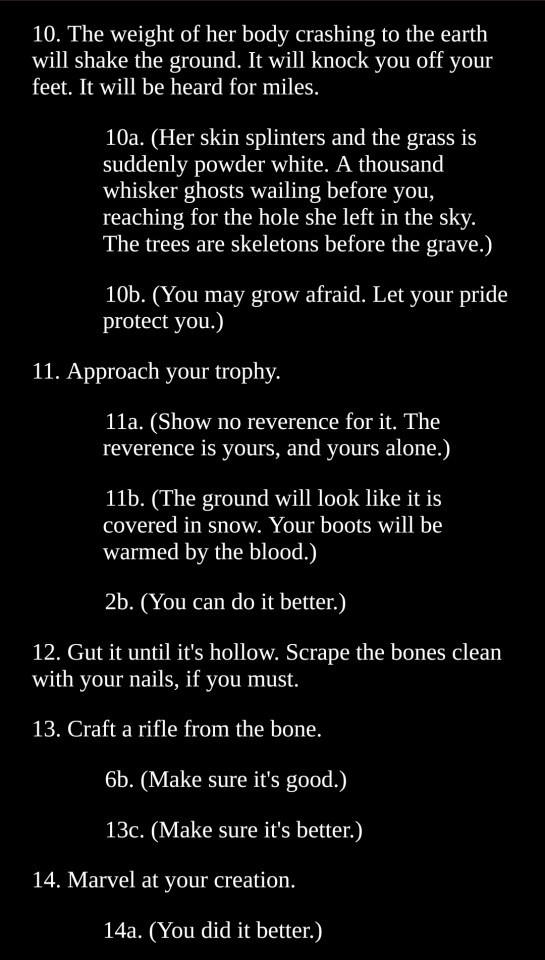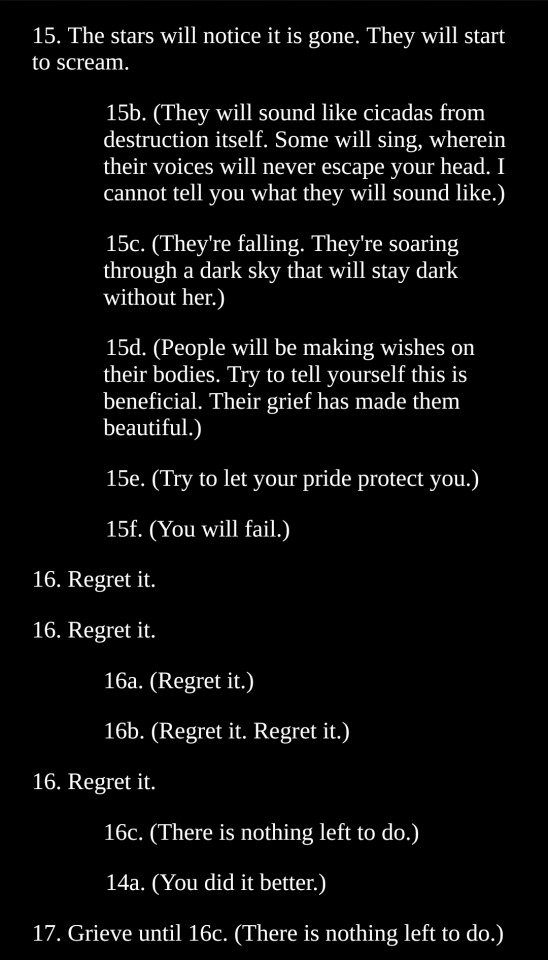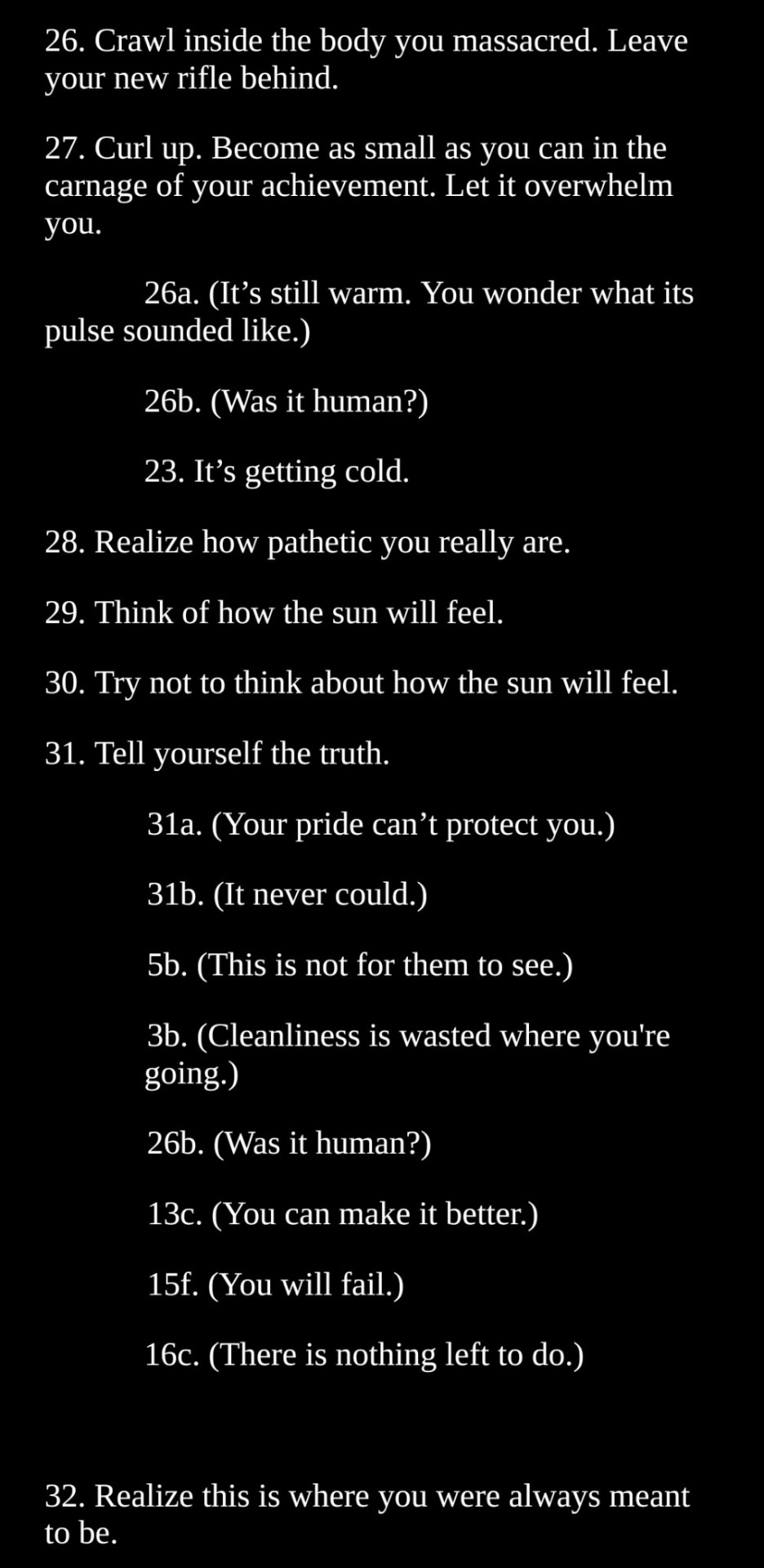Don't wanna be here? Send us removal request.
Text
“Rayford’s Song” from Legends from Camp by Lawson Fusao Inada
Rayford’s song was Rayford’s song, but it was not his alone, to own.
He had it, though, and kept it to himself as we rowed-rowed-rowed the boat through English country gardens with all the whispering hope we could muster, along with occasional choruses of funiculi-funicula!
Weren’t we a cheery lot— comin’ ‘round the mountain with Susanna, banjos on our knees, rompin’ through the leaves of the third-grade music textbook.
Then Rayford Butler raised his hand. For the first time, actually, in all the weeks he had been in class, and for the only time before he’d leave. Yes, quiet Rayford, silent Rayford, Little Rayford, dark Rayford— always in the same overalls— that Rayford, Rayford Butler, raised his hand:
“Miss Gordon, ma’am— we always singing your songs. Could I sing one of my own?”
Pause. We looked at one another; we looked at Rayford Butler; we looked up at Miss Gordon, who said: “Well, I suppose so, Rayford— if you insist. Go ahead. Just one song. Make it short.”
And Rayford Butler stood up very straight, and in his high voice, sang: “Suh-whing ah-loooow, suh-wheeet ah-charr-eee-oohh, ah-comin’ for to carr-eee meee ah-hoooome…”
Pause. Classroom, school, schoolyard, neighborhood, the whole world focusing on that one song, one voice which had a light to it, making even Miss Gordon’s white hair shine in the glory of it, glowing in the radiance of the song.
Pause. Rayford Butler sat down. And while the rest of us may have been spellbound, on Miss Gordon’s face was something like a smile, or perhaps a frown: “Very good, Rayford. However, I must correct you: the word is ‘chariot’ Do you understand me?”
“But Miss Gordon…”
“I said ‘chariot, chariot.’ Can you pronounce that for me?”
“Yes, Miss Gordon. Chariot.”
“Very good, Rayford. Now, class, before we return to our book, would anyone else care to sing a song of their own?”
Our songs, our songs, were there— on tips of tongues, but stuck in throats—songs of love, fun, animals, and valor, songs of other lands, in other languages, but they just wouldn’t come out. Where did our voices go?
Rayford’s song was Rayford’s song, But it was not his alone, to own.
“Well, then, class— let’s turn our books to ‘Old Black Joe.’”
Via https://www.sjsu.edu/faculty/mary.warner/Engl112B_handouts/Rayford'sSongEdited.doc (automatic download link)
0 notes
Text
“They Are Building a Hospital” by Maya C. Popa
THEY ARE BUILDING A HOSPITAL
On the field outside my home, a field hospital, in an actual field, the great American Oak on one end, the Tupelo on the other. They have laid white tarp over the boggy grass and raised a series of insulated tents. It has blossomed overnight like a dark circus, machines to dehumidify the air, cots like dollhouse furniture and intricate machines to keep alive those whose bodies are resigned to leaving. An orchestra of discipline and calculated faith, of power cords and outlets maneuvered around trees, of hoping rain holds and spring reads the room: the human beings are desperate. They have built a hospital where, in other days, I walked my dog, counting no blessing but the one I chased, who startled strangers on blankets before stretching on the grass. How happy I was not knowing how happy, walking the path along the field’s perimeter, watching the sky flare its oranges and pinks, reflect a cool purple off the leaves. Idling in goodness, letting the mind loose over the life let it. I thought forever, did not think, for so much of gladness was thoughtlessness. Now I mourn the hours from the safety of my health, stand a little lost at what proceeds the mourning. They are building a hospital— the whir of engines stirs the animals, a melody, a dirge, the robins sing.
via:
0 notes
Text
“Pantoum for recital when my mom said, don’t let them see you cry” by Kay Ulanday Barrett
as a child, I was dressed as a bumblebee, buzzing— on stage, moved to music, the only brown child at the entire recital, there I was, glowing. I was taught to be a consummate performer!
on stage, moved to music, the only brown child still, I knew all the steps, harmonized my muscles, I was taught to be a consummate performer. once, I was shoved into the orchestra pit.
still, I knew all the steps, harmonized my muscles. there, my stinger broken, determined, I crawled out of the hole. once, I was shoved into the orchestra pit, all the white girls seemed to laugh with the crescendo.
there, my stinger broken, determined, I crawled out of the hole at the entire recital, there I was, glowing. all the white girls seemed to laugh with the crescendo! as a child, I was dressed as a bumblebee, buzzing—
via:
0 notes
Text
“Ordinary Sugar” by Amanda Gunn
Aunt Mary made graham cracker cake without measuring cups, divided one pound light brown sugar with a knife, half for the cake and half for the pearlescent hand-beaten, double-boiled icing. Aunt Earline made yellow cake with frosting of real fudge—234 degrees and all, slow cooled, poured just before the rapid and irrevocable hardening. Ordinary sugar coaxed to its epiphany.
An heir to their confectionary sleight of hand, I keep their notes pressed in a book and safe. Sugar is poison to my arthritic knees, but their recipes will rest, nonetheless, pristine, not spoiled with things that just seem sweet. I’ll make savory dishes out of what grows green, what snaps pleasurably, what must, after twice the loss of such women, be plenty.
Of Grandma Mattie, sugar alchemist, it is said, if they were all she had to hand, she could make sweet potato pie out of russets. Seduce their pale starches until they tumbled into caramel. What the loving living tell. I remember her gleaming glass eye, her pregnant wordlessness, her spinning through the kitchen hot and fast. Too, the ruthless manic canning, putting by, putting by, against memories too near starvation—the machine in her belly built to last. I do not have preserved
in my book how she seasoned her pear chow-chow or trapped the summer gardens her labors made lush. I know only that she fed the earth her eggshells and morning coffee grounds, that she harvested continually and in fullness, the tender skins near breaking, near sugar, always before the chill. Not one bite lost. She’d mastered, in a life, how to grow a winter meal, to till, to weed, to water, to tend, learned how, I hope, to be satisfied.
Help me, Lord, to be satisfied. I was born impatient, under a vibrating star. But my mother taught me gently, before it ached us both to stand, how to slice fat into cold flour, sprinkle ice water by tablespoons, form a perfect discus of dough without touching it. Unfurl the crust from a good French pin. Brush with milk. A proper flute. Taught me, too, how to discern and sort and sugar down the fruit, and when to fill the plate, and when to wait, instead, for the juice to come in.
via:
0 notes
Text
“The Coup” by Valencia Robin
My mother in all her armor which so rarely came off—her laws, her decrees, her look that said, Don’t ask me for anything before I could ask for anything, that roared Off with her head! when I asked anyway. Thus once—in a rare show of defiance—I said, Then I want to call my father. And even now I can’t believe the words came out of my mouth. My father, a man my mother had never acknowledged, whose absence was treated no differently in our house than, say, not having a cat or washer and dryer. She looked terrified, like a dictator threatened with a coup, like a lonely despot betrayed by her most trusted servant, like a single mother, catching three buses to work, no idea how she could be the bad guy.
via:
0 notes
Text
“Conflict Resolution for Holy Beings” part 5 by Joy Harjo
5. ELIMINATE NEGATIVE ATTITUDES DURING CONFLICT:
A panther poised in the cypress tree about to jump is a panther poised in a cypress tree about to jump.
The panther is a poem of fire green eyes and a heart charged by four winds of four directions.
The panther hears everything in the dark: the unspoken tears of a few hundred human years, storms that will break what has broken his world, a bluebird swaying on a branch a few miles away.
He hears the death song of his approaching prey:
I will always love you, sunrise. I belong to the black cat with fire green eyes. There, in the cypress tree near the morning star.
via:
0 notes
Text





This is in no way the best way to post it but it is the only way I could get the format to stay
15K notes
·
View notes
Text

Jackie Sabbagh, “Having a Great Time Being Transgender in America Lately”
25K notes
·
View notes
Text
"Evening Train" by Denise Levertov An old man sleeping in the evening train, face upturned, mouth discreetly closed, hands clasped, with fingers interlaced. Those large hands lie on the fur lining of his wife’s coat he’s holding for her, and the fur looks like a limp dog, docile and affectionate. The man himself is a peasant in city clothes, moderately prosperous – rich by the standards of his youth; one can read that in his hands, his sleeping features. How tired he is, how tired. I called him old, but then I remember my own age, and acknowledge he’s likely no older than I. But in the dimension that moves with us but itself keeps still like the bubble in a carpenter’s level, I’m fourteen, watching the faces I saw each day on the train going in to London, and never spoke to; or guessing from a row of shoes what sort of faces I’d see if I raised my eyes. Everyone has an unchanging age (or sometimes two) carried within them, beyond expression. This man perhaps is ten, putting in a few hours most days in a crowded schoolroom, and a lot more at work in the fields; a boy who’s always making plans to go fishing his first free day. The train moves through the dark quite swiftly (an Italian dark, as it happens) with its load of people, each with a conscious destination, each with a known age and that other, the hidden one – except for those still young, or not young but slower to focus, who haven’t reached yet that state of being which will become not a point of arrest but a core around which the mind develops, reflections circle, events accrue – a center. A girl with braids sits in this corner seat, invisible, pleased with her solitude. And across from her an invisible boy, dreaming. She knows she cannot imagine his dreams. Quite swiftly we move through our lives; swiftly, steadily the train rocks and bounces onward through sleeping fields, our unknown stillness holding level as water sealed in glass.
Via
1 note
·
View note
Text
FIRST LOVE
Hill Street was a sweet-smelling, rainbow-tinted place in summer, thanks to the trellis of American Beauty roses that hugged the house, a tangle of wild grapevines, a patch of violets and anemones, and the saucer-sized white hydrangeas and blue hydrangeas that challenged the bushes for attention. A carpet of lemongrass and clover begged me to lie down, and every day it didn’t rain, I obliged.
From Ordinary Hazards by Nikki Grimes
1 note
·
View note
Text
“The Place Where We Are Right” by Yehuda Amichai translated by Stephen Mitchell
From the place where we are right flowers will never grow in the spring.
The place where we are right is hard and trampled like a yard.
But doubts and loves dig up the world like a mole, a plow. And a whisper will be heard in the place where the ruined house once stood.
Via:
0 notes
Text

“Upon Turning 25, A Small Nervous Breakdown” by Megan Williams
7K notes
·
View notes
Text
Kulila
Written by Ali Cobby Eckermann
sit down sorry camp might be one week might be long long time
tell every little story when the people was alive tell every little story more
don’t forget ’em story night time tell ’em to the kids keep every story live
don’t change ’em story tell ’em straight out story only one way story
all around ’em story every place we been every place killing place
sit down here real quiet way you can hear ’em crying all them massacre mobs
sit down here real quiet you can feel ’em dying all them massacre mobs
hearts can’t make it up when you feel the story you know it’s true
tell every little story when the people was alive tell every little story more
might be one week now might be long long time sit down sorry camp
Via:
0 notes
Text
The One
Written by Patrick Kavanagh
Green, blue, yellow and red – God is down in the swamps and marshes Sensational as April and almost incred- ible the flowering of our catharsis. A humble scene in a backward place Where no one important ever looked The raving flowers looked up in the face Of the One and the Endless, the Mind that has baulked The profoundest of mortals. A primrose, a violet, A violent wild iris – but mostly anonymous performers Yet an important occasion as the Muse at her toilet Prepared to inform the local farmers That beautiful, beautiful, beautiful God Was breathing His love by a cut-away bog.
Via:
0 notes

